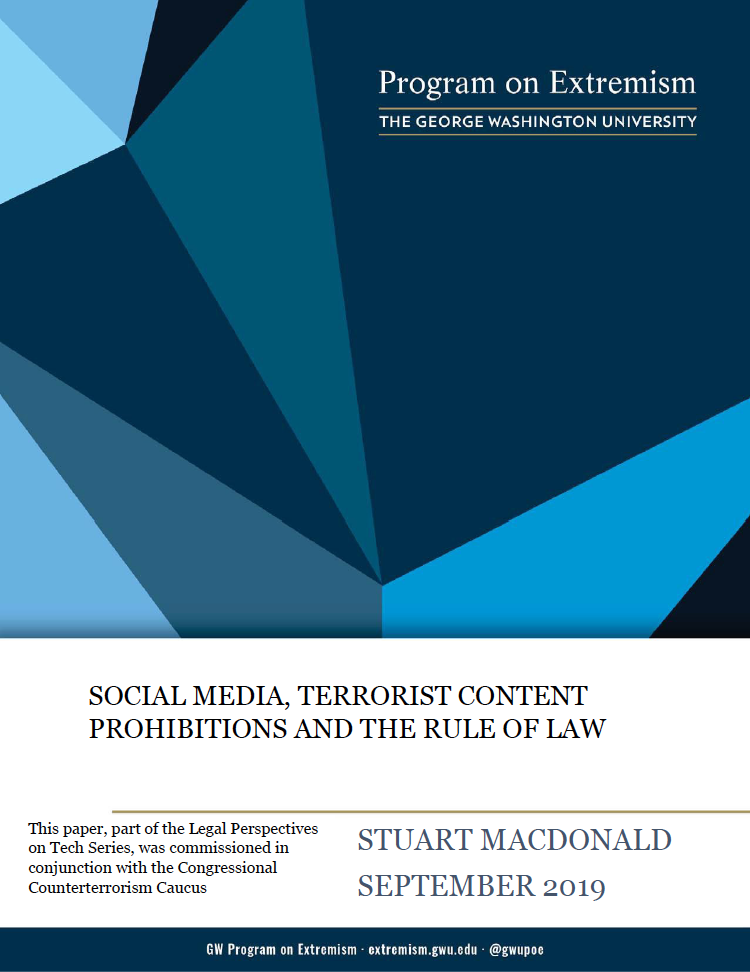The importance of the rule of law to an effective counterterrorism strategy is widely accepted. Adherence to rule of law values protects both the legitimacy and moral authority of counterterrorism policies and legislation. This paper focuses on two specific rule of law values: minimalism and certainty. Minimalism is concerned with issues of scope. Laws should be as narrowly drawn as possible in order to preserve individuals’ autonomy and freedom to choose, to the fullest extent possible. Certainty is concerned with issues of clarity. Laws should be worded as clearly as possible so that individuals are aware of their responsibilities and able to make informed choices about their actions. Narrowly, clearly drawn laws also limit the discretion vested in officials, thus providing protection against inconsistent or inappropriate decision-making by those tasked with implementing the law.
The rule of law is traditionally associated with public institutions, not private technology companies. In the contemporary realm of counterterrorism, however, a steadfast public-private distinction is difficult to maintain. Indeed, many have urged the importance of public-private partnerships in responding to terrorists’ use of the internet. One specific issue that has generated much discussion has been social media companies’ regulation of extremist content on their platforms. Facebook’s Community Standards, the Twitter Rules, and YouTube’s Community Guidelines all expressly prohibit content that promotes terrorism. Most of the discussion of these prohibitions has focused on the speed with which they are enforced, particularly following the attacks in Christchurch, New Zealand. This paper seeks instead to evaluate the prohibitions from the different, but equally important, perspective of the rule of law values of minimalism and certainty.
To inform the discussion, the paper draws on the debates that have surrounded the U.K. ‘Encouragement of Terrorism’ criminal offense. Created by the Terrorism Act 2006, and recently amended by the Counter-Terrorism and Border Security Act 2019, this offence has proved controversial from its inception for two principal reasons. First, the offense expressly encompasses both direct and indirect encouragement. Critics have argued that the concept of indirect encouragement is too nebulous and gives the offense too wide a scope. Second, the framing of the offense focuses not on the purpose of the speaker, but on whether the potential effect of the statement is to encourage terrorism. This too, it has been argued, gives the offense too wide a scope.
In terms of the social media companies’ prohibitions on terrorism-promoting content, this paper accordingly asks two questions. Do the prohibitions encompass indirect, as well as direct, encouragement? And, for the prohibitions to apply, must the encouragement of terrorism have been the purpose and/or the likely effect of the relevant content? The answer to neither question is clear from the wording of the prohibitions themselves. The paper will argue that, in terms of the values of minimalism and certainty, it is important that the answers to both questions are made explicit. It will also suggest how both questions should be answered and provide a proposed reformulation of the social media companies’ prohibitions on terrorism-promoting content.


